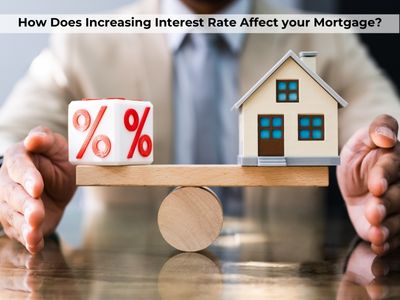To fight inflation, the Bank of Canada continuously raises its annual interest rate. And January 25, 2023, marked the 8th consecutive time the Bank of Canada increased its overnight rate, which makes it at 4.50%.
Still, you can find the best mortgage rate Canada here.
The increasing interest rates have an effect on every borrower like you. How does it affect you and your mortgage?
The following factors determine your interest rate:
1. Overnight rate set by the Bank of Canada
The overnight rate set by The Bank of Canada has the most impact on your interest rate. It will be the basis of your mortgage lender’s interest rate.
2. Your credit score
Your credit score is a three-digit number that determines your creditworthiness. If your credit score is above 700, you will have the best deals when applying for a mortgage and won’t have trouble getting approved. However, if you have below 700, consider boosting your credit score first to get easy approval and lower interest rates.
3. Variable or Fixed rate
Choosing between what rate you’ll choose can be a crucial decision. The variable rate has a lower interest rate compared to the fixed rate. However, always remember that the variable rate fluctuates. If the interest rate increases, so do the variable, whereas the fixed rate stays the same as long as your mortgage term won’t end.
4. The term of the mortgage
The longer your mortgage term, the lower your monthly payment and interest will be.
How does the increasing interest rate affect your mortgage?
You are affected by the interest rate hike depending on what type of borrower you are.
If you are a first-time home buyer in Canada with a tight budget, it will reduce how much home you can afford. A 1% increase in interest rate might not look big, but it is. It can cost you hundreds of dollars with every single hike.
Suppose you are a borrower that holds a variable mortgage rate. In that case, you have the most impact on the borrowers because the interest rate you’ll be paying will go together with the overnight rate set by the Bank of Canada. Remember, variable rates fluctuate.
Either you pay more on your monthly payments, or you can still have the exact cost. However, if you choose to have the same amount, a more significant part will go towards your interest, and the rest will go to your principal. It will take longer to pay off your mortgage since you’re paying more interest.
If you are a borrower holding a fixed mortgage rate, you would see no impact on your mortgage unless you have to renew your mortgage term.
What is the best choice: Variable or Fixed rate?
Choosing between the interest rates can be crucial, especially when you’re trying hard to save as much as possible.
Variable has a lower interest rate than fixed rates, but it fluctuates. The fixed rate has a higher interest rate than the variable rate but gives you security for the entire mortgage term. It’s confusing. Do you want that low-interest rate or a sense of security?
Here’s the walk-through of the pros and cons of each rate.
Variable rate Pros:
1. Borrower’s monthly payment can go down when interest goes down.
2. Lower interest rates than fixed rates.
3. Better introduction of interest rates when taking out a loan.
Variable rates Cons:
1. If the market causes interest rates to go up, your monthly payment will also go up.
2. The borrowing price could be higher over the duration of your mortgage loan depending on the market condition.
3. It will take a lot of work to predict the affordability of the mortgage as the market conditions and rates continue to change.
Fixed Rate Pros:
1. Borrowers can predict their monthly budget because their mortgage payments will remain unchanged.
2. You don’t have to worry about the rates going up.
3. It is easier to calculate the total cost of borrowing.
Fixed-rate Cons:
1. If the market interest rate decrease, the borrower will be stuck in a higher interest rate.
2. Fixed rates may be higher than variable rates.
3. To get lower rates, the borrower would need to refinance, which can cost them more fees.
In general, variable rates tend to have lower interest rates because they are riskier for borrowers. In choosing the rate for you, you need to understand how the two rates work and how your financial situation will react.
Excluding the interest rate, there are more payments you have to consider when applying for a mortgage. Closing fee, lender’s fee, and many more. That is why choosing the correct rate that fits you financially is very important.
Conclusion:
The increasing interest rates have their own ups and downs. Sure, it causes you to pay more, affecting your budget. But we can always look at the positive side of the increasing rate.
Bank of Canada raises interest rates mainly to fight inflation. And now, they are getting results of 6.3% from 8.1%. Still three times the target of 2%; however, it is not bad.
Increasing interest rates can happen, whether we like it or not. So the best way to deal with it is to find sources and methods to deal with it.
Mortgage lenders in Canada will help you go through this phase.




